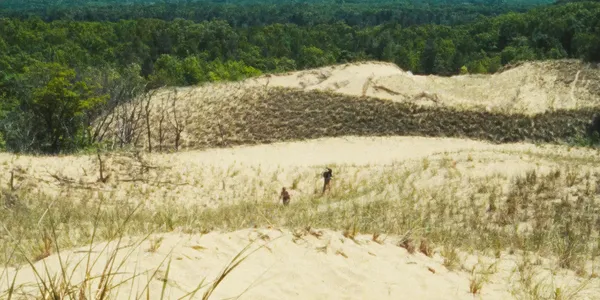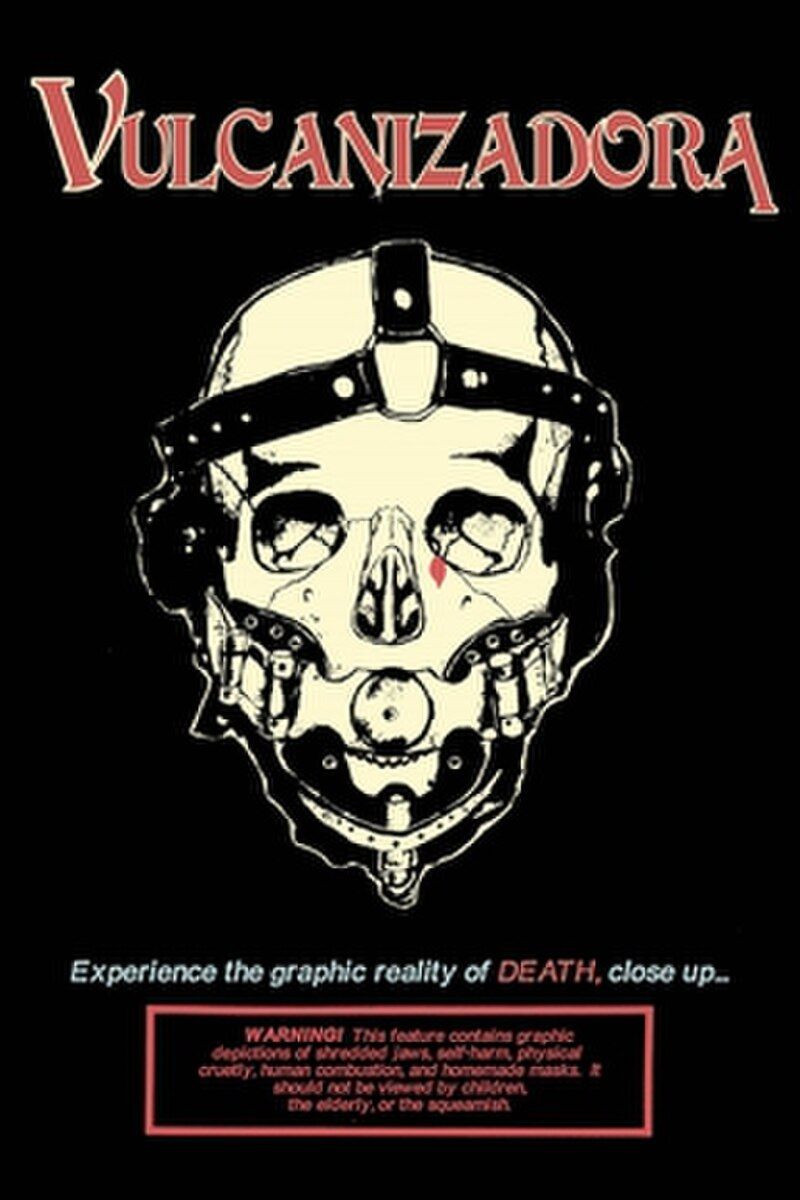Eye For Film >> Movies >> Vulcanizadora (2024) Film Review
Vulcanizadora
Reviewed by: Jennie Kermode

Inspired by the opening of Gus Van Sant’s Gerry, which itself drew heavily on aspects of Bela Tarr’s Sátántangó, Vulcanizadora is very much a filmmaker’s film, but that’s not to say that it won’t impact you profoundly no matter who you are. In its initial sequence, framed entirely in imitation of Van Sant’s work, we see two best friends – one played by Joshua Burge and one by director Joel Potrykus – heading out into the forest together. We don’t know where they’re going, or why, but as we listen in to their conversation it quickly becomes clear that they don’t expect to come back.
“You are gonna lose your brain dude. This is gonna be so awesome!” says Derek (played by Potrykus himself), assuring Marty (Joshua Burge) that he has something to show him. You’ll be glad to hear that you don’t have to wait until the end of the film to find out what it is – the build-up is too wild, too excitable for anything to live up to it. This is well suited to a film whose success is likely to come in large part from word of mouth, and one which shifts dramatically halfway through due to an incident which must remain unspoken. The violence of that incident is not inherently any more extreme than what can be seen in the average Saturday night thriller, but it’s shocking on a different level, and it has left audiences reeling.

This is due in part to an idea that has never been presented in cinema before and is well supported by the effects work. More impactful, however, is the quality of the acting and the intimate way we get to know these characters before it happens, even though all we’re doing is hanging out in a forest with them whilst they do childish things like make bottle rockets and hit trees with sticks. Potrykus keeps his camera close so that it really feels as if we’re just alongside them, and the awkwardness as much as the trust in their relationship makes them feel like real friends. We don’t learn a whole lot about them, beyond the fact that Derek has a five-year-old kid and Marty has been struggling with feelings of guilt, but it’s enough.
Taking a different direction in the second half but exploring related themes, the film explores ritualistic aspects of behaviour and the way in which we sometimes struggle to work out the proper course of action in the absence of formal structures. It’s very much a film about grief (there have of course been a lot of those since the Covid pandemic began), and about trying to reorientate oneself in a world which has stopped making sense. The crudity of those early scenes invites viewers to relax and open up in a way that enables deep communication. Derek’s early, wandering monologues in search of meaning give way to something that’s hard to pin down yet unexpectedly profound.
More of a poem than a conventional prose narrative, Vulcanizadora expands beyond its moment of horror into something poignant. Although its characters are middle aged, their childish games in the first half signal a kind of coming of age; and yet unlike most films on that theme, which end when childhood is left behind, it keeps us there to explore what it means to be an adult. It’s a film full of disappointments and compromises which tell us more than triumph might. The soundtrack, which mixes opera and death metal, invites us to think about contrast, as do the sudden shifts between forest close-ups and wide open shots of bright dunes, but in each of these situations the effect is equally immersive. Shot on film, it looks beautiful, but that’s not the reason why it will stay with you.
Reviewed on: 03 May 2025
















